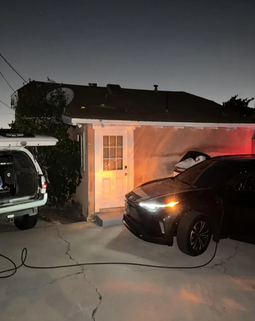As of April 2023, Laos is experiencing a remarkable shift towards electric vehicles (EVs), driven by soaring fuel costs and a collective desire to reduce air pollution. This transition is not just a personal choice for many Laotians but aligns with the government's strategic push toward EV adoption.
Rising EV Imports
Laos witnessed a significant surge in electric vehicle imports, with 3,895 electrically powered vehicles entering the country as of April 2023. Notably, 1,773 were electric motorbikes, indicating a diverse adoption of EVs across different vehicle types.
Individual Stories: A Glimpse Into Change
Individual stories, such as that of Sengchan Khamxay, a 35-year-old trader in Vientiane province, highlight the practical impact of this shift. Sengchan's decision to switch to an electric vehicle five months ago was driven by the escalating fuel costs, leading to substantial savings in his monthly expenses.
Cost-Effective and Eco-Friendly Choice
Sengchan emphasizes the dual benefits of choosing electric vehicles - cost-effectiveness and environmental friendliness. With a competitive price, modern design, advanced technology, and safety features, electric cars are becoming an attractive option for many Laotians. The emphasis on environmental sustainability aligns with global efforts to reduce carbon footprints.
Government's Strong Push
The Lao government is actively promoting electrically powered vehicles as a strategic move to reduce reliance on imported fuel and enhance energy security. Buavanh Vilavong, Director General of the Department of Industry and Handicraft under the Lao Ministry of Industry and Commerce, highlights the urgency of adopting EVs to minimize the budget for importing petroleum.
The government's encouragement is driven by economic considerations and the nation's significant potential for electricity production.
Economic Impact and Trade Balance
Fuel imports account for a substantial portion of Laos' total import value, reaching 20%. The shift towards EVs addresses environmental concerns and contributes to maintaining a favorable trade balance. The government's data reflects a decline in spending on diesel and petrol imports due to the promotion of electric vehicles.
Individual Perspectives and Memories of Fuel Shortages
Like 36-year-old Phakdy, Laotians recall the fuel shortages in early 2022, a challenging period with long queues and closed petrol pumps. With fuel costs remaining high, individuals like Phakdy are now contemplating purchasing electric cars to mitigate the financial burden associated with traditional fuel.
Challenges and Government Initiatives
The continued depreciation of the Lao kip against rising global oil prices poses challenges for fuel distributors. To prevent a drop in fuel imports, the government is actively working to ensure that fuel importers can access sufficient foreign currency.
Infrastructure Development and Charging Stations
As of 2022, Laos boasted over 20 charging stations, showcasing the country's commitment to building the necessary infrastructure to support electric vehicles. Additionally, 18 dealerships have expressed interest in importing electric vehicles, indicating a growing market for EVs nationwide.
Conclusion
Laos stands at the forefront of a transformative shift towards electric vehicles, fueled by economic considerations, environmental consciousness, and the government's strategic initiatives. The growing number of charging stations, increasing imports of electric vehicles, and individual stories of positive experiences underscore a promising future for electric mobility in Laos.





